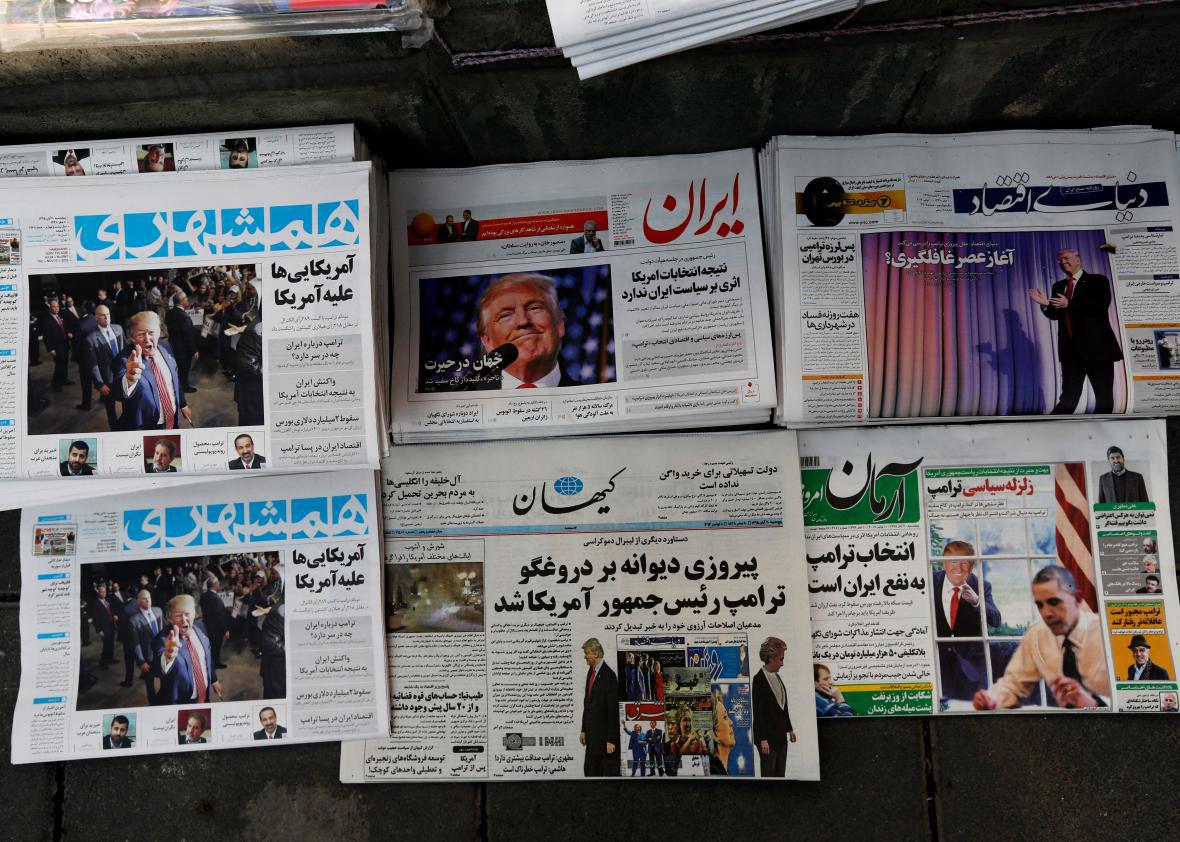During his campaign, Donald Trump said that his “number-one priority is to dismantle the disastrous deal with Iran.” Evidently, he’s found a few other priorities more pressing, since nearly 100 days into his presidency, there’s been almost no movement on dismantling the 2015 Joint Comprehensive Plan of Action (JCPOA). In fact, in a letter to Congress earlier this week, Secretary of State Rex Tillerson more or less conceded that Iran is complying with its obligations under the deal so far.
Tillerson’s letter follows an assessment by the International Atomic Energy Agency in February that Iran has so far complied with restrictions on its uranium enrichment and is not pursuing construction on its heavy-water research reactor. However, the letter also said that the National Security Council would be reviewing whether it’s in the U.S. national security interest to lift sanctions, as required under the JCPOA, given that “Iran remains a leading state sponsor of terror through many platforms and methods.” The secretary also said, a bit confusingly, in a public statement at the State Department yesterday, that “The JCPOA fails to achieve the objective of a non-nuclear Iran. It only delays their goal of becoming a nuclear state.” All of this gives the impression that, while the Trump administration is still opposed to the deal, it will probably remain in place for the time being.
Trump was never likely to simply pull the United States out of the deal unilaterally. But there are still ways it could be gradually dismantled. Secretary of Defense James Mattis is currently in Saudi Arabia, Iran’s regional archrival, as an additional show of support in an already extremely friendly relationship between the Trump administration and the kingdom. The Saudis have welcomed Trump’s hard line on Iran after what they saw as a disastrously conciliatory approach from the Obama administration. They were likely further cheered by this statement from Mattis:
“Everywhere you look, if there is trouble in the region, you find Iran. So, right now, what we are seeing is the nations in the region and others elsewhere trying to checkmate Iran and the amount of disruption, the amount of instability they can cause.”
So far, this approach has been most evident in the Trump administration’s increased support to the Saudi-led coalition in the brutal proxy war in Yemen, and its scrapping of human-rights related arms sale restrictions on Saudi-allied Bahrain. Trump’s new anti-Assad line in Syria will also be encouraging to Saudi Arabia and its allies, and removes one of the central contradictions of Trump’s foreign policy—the idea that Iran was the main source of all instability in the Middle East but that the Iranian-supported government in Damascus was a reliable potential partner against extremism.
Meanwhile back in Washington, Congress is debating new sanctions on Iran related to its ballistic missile program. While the sponsors of the Iran’s Destabilizing Activities Act, introduced in late March, say it’s not meant to undermine the nuclear deal, a number of experts and former diplomats have warned that it could make it harder for the U.S. to lift sanctions on Iran in the future, as would be required if Iran continues to comply with its obligations.
All of this is happening as Iran is gearing up for a presidential election on May 19, which is likely to be in part a referendum on the JCPOA, the signature initiative of President Hassan Rouhani, who is running for reelection. The perception of a more aggressively anti-Iranian U.S. foreign policy, or the specter of Washington backing away from its commitments, could have an impact on Iranian domestic politics, either leading to the election of a more hardline president or giving moderates less room to maneuver. Either scenario makes it more likely that Tehran will increase its support for foreign militants, conduct more missile tests, or test the limits of the JCPOA’s restrictions on nuclear activities.
Trump doesn’t have to actually tear up the deal. If current trends continue, he can just watch it collapse.
